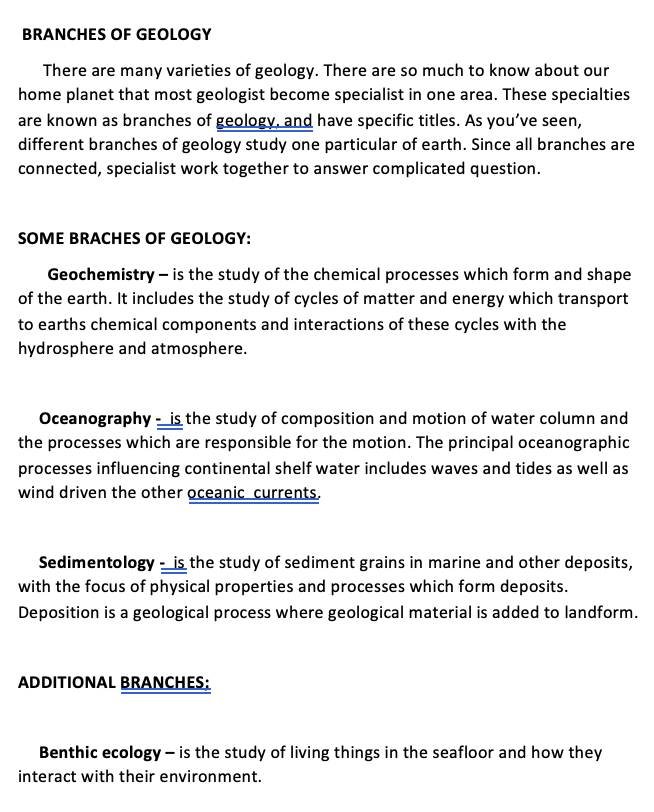Branches of Geology
Summary:
Geology delves deep into the study of our planet, with its vast intricacies often leading geologists to specialize in specific segments termed branches. Geochemistry explores the Earth’s chemical processes and the cycles of matter and energy that interact with our atmosphere and hydrosphere. Oceanography is dedicated to understanding the composition and movement of water, influenced by elements like waves, tides, and wind. Sedimentology zeroes in on sediment grains and the physical attributes that lead to their formation. Benthic ecology dives into the world of seafloor organisms, while Biostratigraphy employs fossils to deduce rock ages and sedimentary patterns. Geochronology offers a clock to Earth’s materials, painting a temporal narrative of our planet’s past. Geophysics utilizes an array of techniques, from electromagnetics to seismic studies, to glean information, with Marine Geophysics narrowing its lens to the composition of coastal and marine waters. Marine Surveying spans from oceanographic studies of water columns to imaging rocks beneath the seafloor. Lastly, Spectral Geology harnesses the electromagnetic spectrum to pinpoint features across varied rock types and materials.
Excerpt:
Branches of Geology
There are many varieties of geology. There are so much to know about our home planet that most geologists become specialist in one area. These specialties are known as branches of geology and have specific titles. As you’ve seen, different branches of geology study one particular of the earth. Since all branches are connected, specialists work together to answer complicated questions.
SOME BRANCHES OF GEOLOGY:
Geochemistry – is the study of the chemical processes which form and shape the Earth. It includes the study of cycles of matter and energy, which transport to earth’s chemical components and interactions of these cycles with the hydrosphere and atmosphere.
Oceanography – is the study of the composition and motion of water columns and the processes responsible for the motion. The principal oceanographic processes influencing continental shelf water include waves and tides and wind-driven other oceanic currents.


Reviews